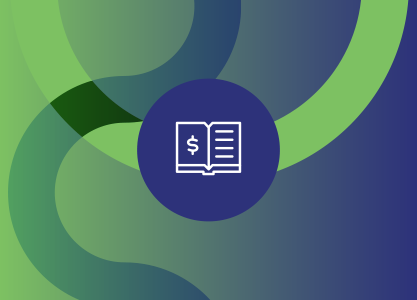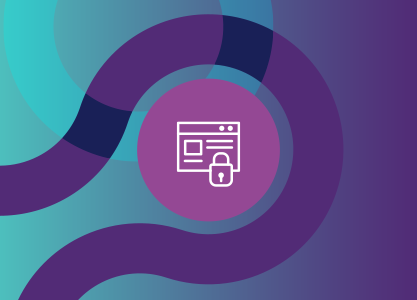Talk Money with Ecstra Foundation offers engaging and interactive workshops, delivered either in person or virtually by our team of trained facilitators.
We offer a range of workshops designed for Australian students in Years 5-10, with content tailored to suit different year groups and learning outcomes. To support and reinforce key concepts, we provide free classroom resources, which have been created for use for teachers, students and parents in the classroom and at home.

Talking about money
Year 5 and 6 students
Students learn how to save, manage, and spend money, manage needs versus wants, have money conversations, and discuss the digitisation of money and different payment options.
Workshop A: Through a series of activities, students examine how people value money differently and how they can have constructive conversations with family and friends about money. They learn practical strategies to set savings goals.
Workshop B: Students examine how to manage money and consider different payment options, including the digitisation of money and influences on their spending.
Australian Curriculum
- Health and Physical Education – Examine how identities are influenced by people and places (ACPPS051)
- Health and Physical Education – Recognise how media and important people in the community influence personal attitudes, beliefs, decisions and behaviours (ACPPS057)
- Health and Physical Education – Examine the influence of emotional responses on behaviour and relationships (ACPPS056)
- English – participate in and contribute to discussions, clarifying and interrogating ideas, developing and supporting arguments, sharing and evaluating information, experiences and opinions (ACELA1709)
- HASS – Use criteria to make decisions and judgements and consider advantages and disadvantages of preferring one decision over others (ACHASSI131)
- HASS (Economics and Business) – The effect that consumer and financial decisions can have on the individual, the broader community and the environment (ACHASSK150)
- HASS (Economics and Business) – Influences on consumer choices and methods that can be used to help make informed personal consumer and financial choices (ACHASSK121)
- HASS (Economics and Business) – The difference between needs and wants and why choices need to be made about how limited resource are used (ACHASSK119)
- HASS (Economics and Business) – How the concept of opportunity cost involves choices about the alternative use of resources and the need to consider trade-offs (ACHASSK149)
- General Capability: Creative and Critical Thinking – Identify and justify the thinking behind choices they have made
- General Capability: Personal and Social Capability – Explain how the appropriateness of emotional responses influences behaviour
- General Capability: Personal and Social Capability – Identify factors that influence decision making and consider the usefulness of these in making their own decisions
- General Capability: Personal and Social Capability – Identify causes and effects of conflict, and practice different strategies to diffuse or resolve conflict situations
- General Capability: Ethical Understanding – Examine values accepted and enacted within various communities
- General Capability: Intercultural Understanding – Describe and compare the knowledge, beliefs and practices of various cultural groups in relation to a specific time, event or custom

Spending and saving money
Year 7 and 8 students
Students focus on spending and saving choices, how decisions now can affect future finances, and developing strategies to achieve financial goals.
Workshop A: Students examine how everyday choices can impact their saving and spending and how to align spending choices with their goals and what they value. They learn strategies to manage social and commercial influences.
Workshop B: Students explore how to make goals achievable and how to develop savings strategies to help manage spending influences and achieve their future goals.
Australian Curriculum
- Economics and Business – Explain why it is important to set and prioritise personal financial goals (ACHES026)
- Humanities & Social Sciences – Why and how individuals and businesses plan to achieve short-term and long-term personal, organisational and financial objectives (ACHASSK200)
- Humanities & Social Sciences – Recognise the importance of planning for their financial futures and appreciate that sacrificing current expenditure can bring long-term benefits (ACHASSi162)
- Mathematics – Investigate and calculate ‘best buys’, with and without digital technologies (ACMNA174)
- Civics and Citizenship – Appreciate multiple perspectives and use strategies to mediate differences (ACHCS057)

Making money work
Year 9 and 10 students
Students explore ways to make money to help build financial independence and how to navigate the workplace including understanding rights at work and managing superannuation and tax.
Workshop A: Students delve into the world of work, looking at different ways and approaches to make money. They discuss their rights as an employee and how to have constructive conversations at work.
Workshop B: Students gain an awareness of their digital profile and learn practical skills including how to read payslips, managing tax and superannuation.
Australian Curriculum
- Work Studies– Identify the importance of rights and responsibilities for employers and workers (ACWSCL019)
- Work Studies– Investigate a wide range of occupations and the skills and personal qualities required in these fields (ACWSCL004)
- Work Studies– Identify types of workplace communication and the effect of context on the choice of communication (ACWSCL007)
- Work Studies– Recognise the importance of self-awareness in career and life design (ACWSCL013)
- Work Studies – Identify types of entrepreneurial behaviours and their opportunities for application to 21st century work and enterprise (ACWSCL010)
- Economics and Business – The changing roles and responsibilities of participants in the Australian or global workplace (ACHEK042)
- Economics and Business – Gather relevant and reliable data and information from a range of digital, online and print sources (ACHES044)
- Personal and Social Capability – Assess their strengths and challenges and devise personally appropriate strategies to achieve future success
- Work Studies – Explain how diverse work arrangements are impacting on the rights and responsibilities of employers and workers (ACWSCL039)
- Civics and Citizenship – Recognise and consider multiple perspectives and ambiguities, and use strategies to negotiate and resolve contentious issues (ACHCS099)
- Work studies – Differentiate between work-related and personal use of social media (ACWSCL008)
- Work studies – Select and use appropriate protocols for communication in workplace contexts (ACWSCL026)

Becoming scam savvy
Year 7 to 10 students
Becoming scam savvy is a new, engaging, and practical workshop from Talk Money, created to help high school students recognise scam red flags and stay safe online.
Workshop: Students explore the common elements of different types of scams. They understand how to protect themselves and respond to scams, including seeking help.
Australian Curriculum
- Digital Technologies: Year 7 and 8 – Explain how multi-factor authentication protects an account when the password is compromised and identify phishing and other cyber security threats (AC9TDI8P13)
- General Capability | Personal and Social Capability: Level 5 (Years 7 and 8)– Use and refine strategies that contribute to regulating behaviour and achieving learning goals
- Economics and Business: Year 9– How individuals and businesses manage consumer and financial risks and rewards (AC9HE9K05)
- Economics and Business: Year 9– Interpret information and data, explaining economic and business issues, trends and economic cause-and-effect relationships, and make predictions about consumer and financial impacts (AC9HE9S03)
- Economics and Business: Year 9– Develop and evaluate a response to an economic and business issue, using cost-benefit analysis or criteria to decide on a course of action (AC9HE9S04)
- Health and Physical Education: Year 9 and 10– Plan, rehearse and evaluate strategies for managing situations where their own or others’ health, safety or wellbeing may be at risk (AC9HP10P08)
- General Capability | Digital Literacy: Level 6 (Years 9 and 10) – Engage in safe, legal and ethical online behaviour and defuse negative online social interactions
- General Capability | Digital Literacy: Level 6 (Years 9 and 10) – Recognise the benefits and risks of anonymity online

